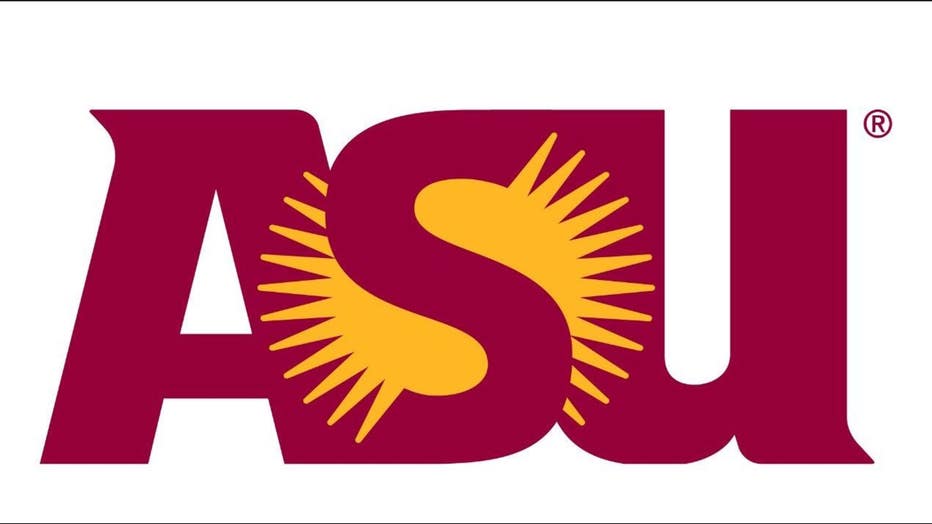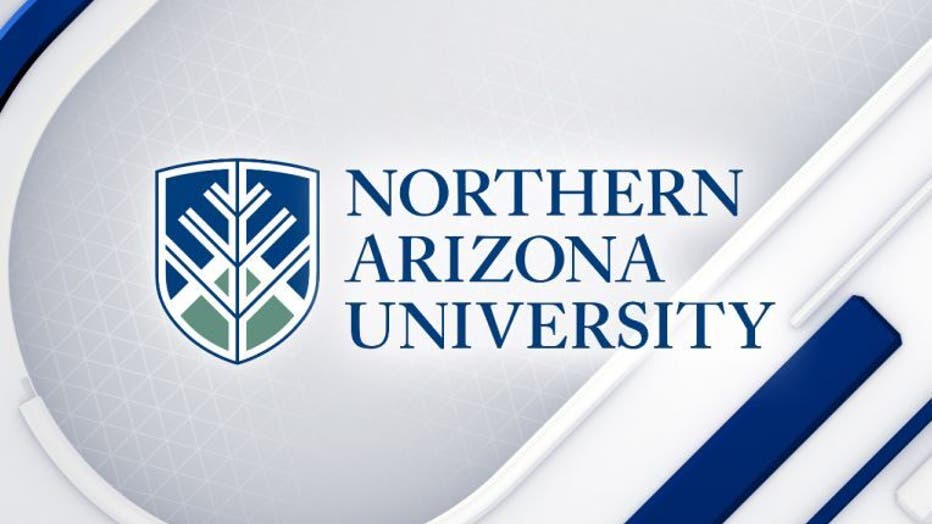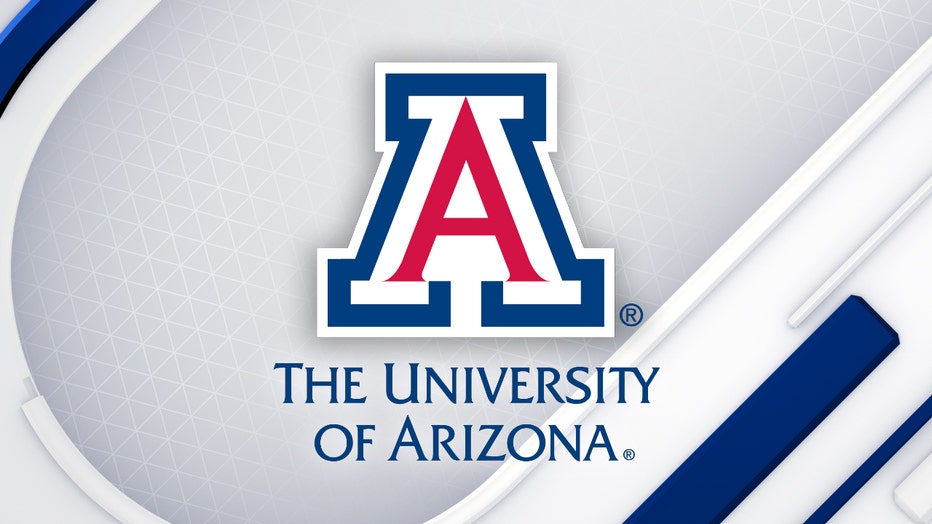Tuition and fee increases proposed for Arizona's public universities: Here's what you need to know
Northern Arizona University, Arizona State University, and the University of Arizona.
PHOENIX - The price of higher education at Arizona's public universities is poised to get higher, as the state's Board of Regents is preparing to vote on a tuition hike for ASU, NAU, and UArizona.
If approved, it would bring the average cost of tuition to more than $12,000 a year.
Here's what you should know about the proposed tuition increase.
How much will tuition go up by?
Depending on what school you are (or will) attend and the program, the answer is different.
ASU

Arizona State University logo
Arizona State University officials proposed the following tuition increase:
- Resident undergraduate and graduate students in campus immersion programs: 3%
- Out of state and international undergraduate and graduate: 5%
- Online students: 2%, as well as a 2% fee increase
Officials also proposed the following new fees and fee increases:
- Undergraduate College Fee - Campus Immersion: Up to $30 a year for residents, and up to $60 a year for non-residents
- Undergraduate College Fee - Digital Immersion: An increase of up to $2 per credit
- Health and Wellness Fee: An increase of $25 per semester, to $80 per student, per semester
- Student Services Facility Fee: An increase of $25 per semester, to $100 per student, per semester
- Transfer Student Enrollment Services (Undergraduate): A new, one-time fee of $250 for all new campus immersion transfer students
- Graduate Student Enrollment Services: A new, one time fee of $250 for all new campus immersion master's student
- Graduate Student Support Fee - Campus Immersion: An increase of $5 per semester
Meanwhile, new or increased program fees have been proposed for a number of programs:
- Graduate Certificate in Medical Nutrition (Digital Immersion): A new, $2,000 per semester fee
- Master of Science in Population Health: A new, $2,500 per semester fee
- Master of Science in Psychology (Positive Psychology): A new, $100 per credit fee
- Master of Arts in Politcal Psychology (Digital Immersion): A fee increase of $100 per credit
- Master of Science in Global Health (Digital Immersion): A fee increase of $50 per credit
- MBA Executive Program: A fee increase of $2,000
- MBA Online Program (Digital Immersion) A fee increase of $1,500
ASU's president, Michael Crow, says the increases are need to give faculty and staff raises, along with maintaining the quality of services.
"Our proposal for [Fiscal Year 2024] is a proposal higher than we requested for tuition in the past many years because of inflation, because of some other things that are going forward, and because of the deep commitment to our staff," said President Crow.
NAU

Northern Arizona University logo
On their website, Officials with Northern Arizona University proposed a 3.5% tuition increase for undergraduates, and a 5% tuition increase for graduates.
Officials listed following base tuition rates for students at their Flagstaff campus:
- New resident undergraduates: $11,352
- New nonresident undergraduates: $27,600
- Resident graduates: $11,846
- Nonresident graduates: $29,338
- International undergraduates: $28,600
- International graduates: $30,338
Officials also listed the following base tuition rates for students at NAU-Yuma, NAU-Yavapai, and NAU Statewide:
- Resident and nonresident undergraduates: $11,352
- Resident graduates: $11,846
- Nonresident graduates: $29,338
For online students, NAU officials listed the following base rates:
- Undergraduates: $473 per credit hour
- Graduates: $610 per credit hour
Officials also proposed the following, in terms of fees:
- A 4% adjustment to existing college fees
- A $1 per credit hour IT fee
- An enrollment fee increase to $325 for incoming Fall 2024 international graduate students
- An increase of $10 per semester for the undergraduate Honors program fee
- An increase of the program fee for the Doctorate in Physical Therapy for all incoming cohorts to $5,200 per semester
- A 4.25% increase in residential housing
- A 6% increase in meal plan costs
UArizona

University of Arizona logo
On their website, UArizona officials listed their tuition and fee proposal, which includes:
- No tuition increase for current undergraduate students, as well as all graduate students in the College of Veterinary Medicine
- A 3% tuition increase for new, incoming resident undergraduates (4% for non-residents)
- A 3% tuition increase for resident graduate students (no increase for non-resident graduates)
- A 4.75% tuition increase for resident students in UArizona's MD program at Tucson and Phoenix (1.25%$ for non-resident students)
- No change in mandatory fees except the Recreation Center Program Fee, which increases with inflation, and the Arizona Financial Aid Trust fee, which increases based on any approved tuition increase
How much have tuition and fees increased in the past 10 years?
According to ASU documents, tuition and fees have gone up quite a bit in the past decade.
In 2012, new resident first-year students paid a total of $9,271 at NAU, $9,720 at ASU, and $10,035 at UArizona (then known as U of A).
Fast forward to 2022, new resident first-year students paid a total of $11,618 at ASU, $12,273 at NAU, and $13,265 at UArizona.
What are ASU students saying about this?
Most ASU students say they are opposed to the proposed tuition and fee hikes, as many struggle to balance the additional rising costs of housing, food, and gas.
"I'm going to have to start working more on top of my classes, just to be able to live on campus. It is a little bit tougher on us," said Sophomore Cecelia Lopez.
ASU's student government leaders are split on the issue, with the school's undergraduate student body president for the Tempe campus, Andrew Kalthoff, agreeing with the proposal.
"As the Council of Presidents, we are proud to endorse the increase of the student initiated fees, which have been approved by the Undergraduate Senate bodies," said Kalthoff.
Jamal Brooks-Hawkins, an ASU graduate student and a member of the Graduate and Professional Student Association, spoke out against the proposal.
"Inflated prices have caused fiscal stresses on graduate students who work full time, not to mention our graduate colleagues who are also parents, spouses and caretakers," said Brooks-Hawkins.
What's the next step for the proposals?
According to the Arizona Board of Regent's website, public hearing on the proposals took place on Mar. 28, and a vote on the proposal is expected to take place on Apr. 20.

